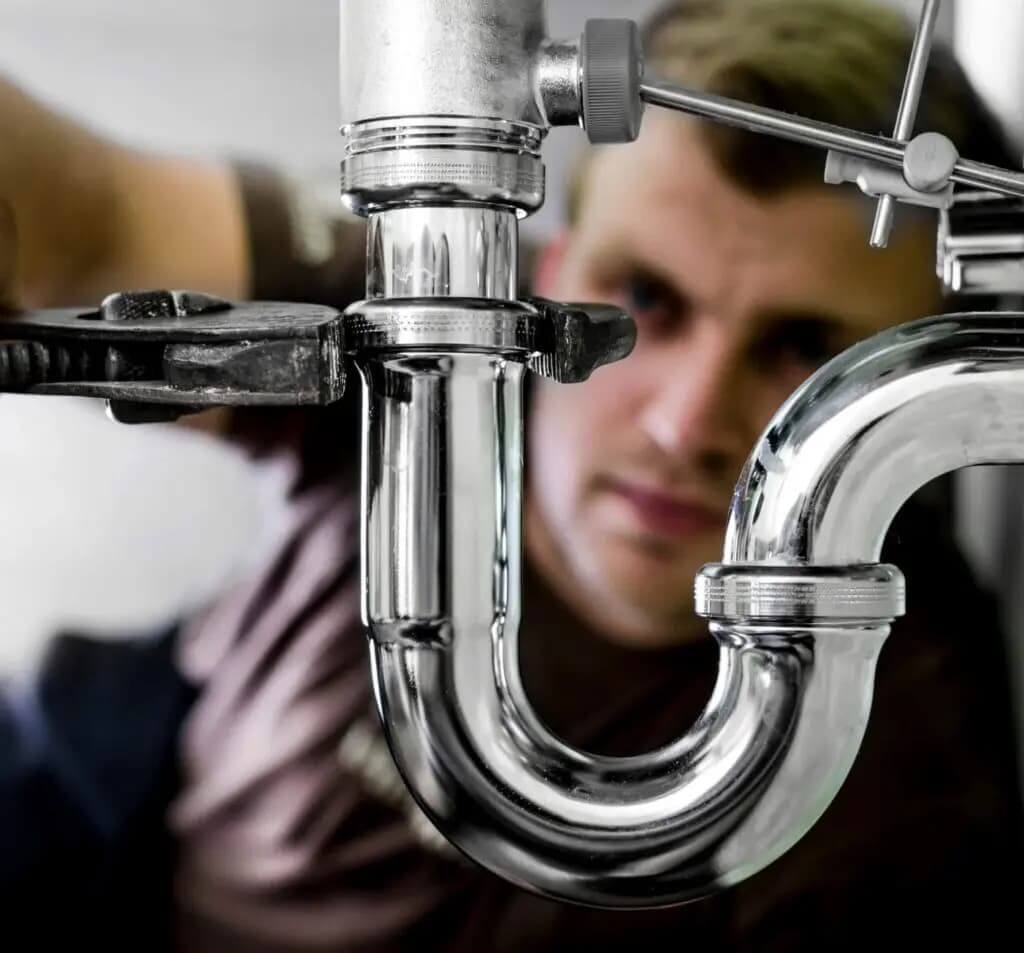Commercial vs. Residential Plumbing: Key Differences in Maintenance Needs
Understanding the plumbing maintenance differences between property types can help you prevent costly repairs, improve system efficiency, and extend the life of your pipes and fixtures.
Why Plumbing Maintenance Is Not One-Size-Fits-All
While both homes and businesses rely on running water, drainage, and functional fixtures, the scope, usage, and regulatory requirements for each setting vary significantly. Knowing the commercial vs. residential plumbing distinctions ensures that your maintenance plan matches your property’s needs.
System Size and Complexity
One of the biggest plumbing maintenance differences is the scale of the system.
- Residential plumbing typically involves fewer fixtures, shorter pipe runs, and smaller water heaters. Maintenance is often straightforward, checking for leaks, flushing water heaters, and clearing occasional clogs.
Commercial plumbing, on the other hand, is more complex. Commercial properties can have multiple floors, extensive piping networks, industrial water heaters, and specialized equipment like grease traps. Commercial plumbing maintenance and service must account for these larger, interconnected systems to prevent service interruptions.
Water Demand and Usage Patterns
A home’s water usage is relatively predictable. Showers, dishwashers, and laundry account for most consumption. In contrast, business plumbing systems may experience high-volume usage during peak hours, restaurants during lunch, offices during morning and afternoon breaks, or retail spaces on weekends. This higher demand puts additional strain on the system, meaning commercial plumbing maintenance often involves more frequent inspections, faster part replacements, and proactive pipe cleaning to handle heavy traffic.
Fixture Durability and Standards
Another major commercial vs. residential plumbing difference is the type of fixtures used. Maintenance for these commercial fixtures may include frequent seal replacements, automatic sensor calibration, and stricter cleaning protocols.
- Residential plumbing fixtures, like faucets and toilets, are designed for comfort, appearance, and moderate use.
Business plumbing systems require industrial-grade fixtures built to withstand constant, heavy use while meeting health and safety regulations. For example, commercial restrooms often feature sensor-operated faucets and high-capacity toilets to manage volume and reduce touchpoints.
Maintenance Frequency
With residential properties, annual inspections are usually enough for a well-maintained home. For commercial properties, inspections may occur quarterly or even monthly, depending on the industry.
Commercial maintenance is especially crucial for industries like hospitality, food service, and healthcare, where even a brief plumbing failure can lead to operational downtime and potential health code violations.
Compliance and Safety Regulations
Commercial properties must adhere to building codes, industry-specific safety standards, and local regulations. This often requires documentation, inspections by certified professionals, and regular upgrades to meet code changes.
In contrast, residential codes are generally simpler, and homeowners can sometimes handle maintenance tasks. However, both settings benefit from working with Toronto plumbers who understand local requirements.
Emergency Response Planning
When a pipe bursts at home, you can usually turn off the main water supply and call a plumber. But in a commercial setting, shutting down the water can halt operations entirely. That’s why business plumbing systems require an emergency plan, designated shut-off points, backup pumps, and contracts for priority service with a professional drain service provider in Toronto.
Residential plumbing emergencies still require quick action, but the impact is usually confined to a smaller space and fewer people.
Drainage System Needs
While clogged drains can happen anywhere, the causes often differ between commercial and residential properties.
- Residential plumbing clogs typically come from hair, soap scum, and food particles.
In business plumbing systems, especially in restaurants or commercial kitchens, grease buildup, heavy food waste, or large debris can overwhelm drains.
Cost Considerations
The costs of maintenance are also part of the plumbing maintenance differences. Commercial services are generally more expensive due to the scale, complexity, and urgency of repairs. Residential services are less costly per visit, but neglect can still lead to expensive maintenance over time.
A strategic maintenance plan for both settings, supported by experienced Toronto commercial plumbing experts, can save money and reduce the risk of unexpected breakdowns.
How to Choose the Right Plumbing Partner
Whether your property is residential or commercial, it’s essential to work with a plumbing team that understands the nuances of all types of plumbing.
For commercial needs, partnering with an experienced company can help you stay compliant, avoid downtime, and extend equipment life. For homes, regular check-ups from a qualified plumber can help you catch issues before they become emergencies.
Whether you’re managing a commercial property or maintaining your home, our team is here to provide expert guidance and reliable service.
Contact New Canadian Drain & Plumbing today to discuss your plumbing needs.



